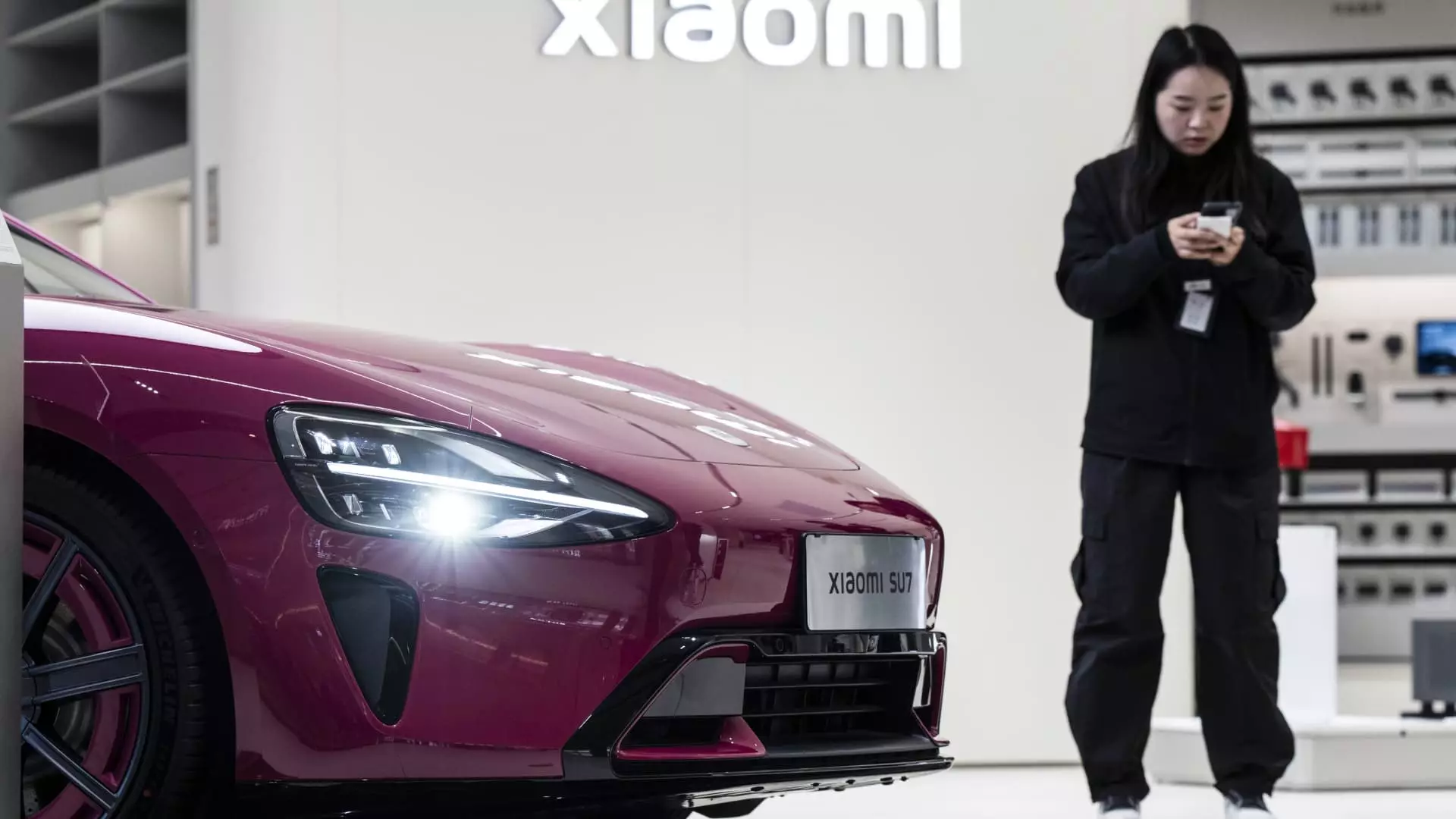In March, several Chinese electric vehicle (EV) manufacturers, notably Xiaomi, Xpeng, and Leapmotor, made headlines by each delivering approximately 30,000 vehicles—a feat that places them notably ahead of their more tepid competitors in the startup sphere. These numbers are not just figures; they reveal a seismic shift within the auto industry and, more importantly, raise critical questions about sustainability, ethics, and the real impact of this surge on consumer safety and economic equality. While it’s easy to celebrate the meteoric rise of these automotive giants, there lies an undercurrent of skepticism that demands attention.
Xiaomi, which saw its delivery numbers soar past 29,000, proudly publishes its milestones on social media, reinforcing the image of a company poised for greatness. Yet, we can’t ignore the somber news that surrounded the brand recently when its flagship model, the SU7, was involved in a deadly crash. This incident, where three lives were lost, compels us to examine how innovation can become a double-edged sword in the hands of reckless enthusiasm. The car was, according to Xiaomi, operating on autopilot at the time—an alarming fact that reignites the debate on the safety of self-driving technologies. Is the eagerness to deliver impressive sales figures and technological advancements blinding companies to their ethical responsibilities?
Survival of the Fittest in the EV Jungle
The dynamics within the Chinese EV market resemble a fierce evolutionary race, one where brands like BYD hold the title of ‘market leader’ with staggering numbers—371,419 vehicles sold in March alone—while others struggle to surpass the 20,000-unit mark. This lends weight to the idea that a significant portion of the market remains monopolized by a select few heavy-hitters. The explosion of deliveries among some companies juxtaposes the stagnation of others, like Nio, which reported 15,039 units—an increase that, while praiseworthy, feels almost like a last gasp rather than an assertive stride. It raises the question: is the rapid growth of some at the expense of others indicative of a bubble ready to burst?
As companies tout impressive year-to-year percentage increases, we must consider the implications of chasing growth at all costs. Leapmotor’s tremendous 154% rise in sales may inspire awe, but these figures could also mask underlying issues that, if ignored, might threaten the overall integrity of the industry. Are we truly witnessing revolutionary progress, or is this simply the sound of marketers drumming up hype around numbers that could easily be rendered meaningless without context?
The Role of Technology and Responsibility
As deployments of advanced technology like artificial intelligence in autonomous driving systems become more prevalent, they present unique challenges that the industry must confront with rigorous vigilance. For instance, BYD has introduced its “DiPilot,” a driver-assistance system that’s claimed to augment vehicle safety. However, with each layer of sophistication added to our cars, we’re confronted with broader ethical dilemmas: Who holds the responsibility when technology fails? The manufacturers? The consumers? This complex web complicates the narrative of innovation being a strictly positive force.
Moreover, a concerning trend is emerging: while some companies make remarkable strides in EV production, others grapple with issues of market viability and regulatory environments. For instance, while Xiaomi and Xpeng are sprinting, companies like Li Auto and Nio experience markedly slower growth due to missed consumer tastes and market shifts. This inconsistency sends waves of uncertainty throughout the sector, causing potential investors and consumers to take a breath before making commitments.
Impact on Economic Disparity and Environmental Concerns
The broader implications of this EV race extend beyond just technology and sales. As middle-class consumers rush to adopt what they perceive as more environmentally friendly vehicles, we must examine whether these products are as green as advertised. Many consumers in urban areas savor the prospect of cleaner air due to less combustion engine pollution. However, the lifecycle environmental costs of battery production and disposal often go unaddressed, leaving a nasty footprint in the shadows of shiny marketing campaigns.
Furthermore, the growing focus on electric vehicles underscores increasing economic disparity in China and worldwide. The emphasis on high-performance EVs appeals predominantly to wealthier segments of society, raising questions about equity. How can we ensure that electric vehicle technology is accessible to all classes of people, not just a privileged few? Instead of celebrating vehicles that are out of reach for many, shouldn’t we advocate for more sustainable manufacturing practices and affordable alternatives for the majority?
The electric vehicle boom in China is more than just an impressive chart of increasing sales; it’s a complex tapestry of innovation, ethics, market dynamics, and social responsibility that must be scrutinized. Selling cars is not merely about growth; it requires corporations to engage in a dialogue with their communities, ensuring that while they race toward the future, no one is left behind.

